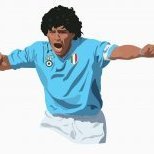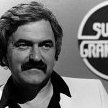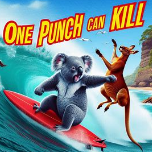Leaderboard
Popular Content
Showing content with the highest reputation on 23/09/17 in all areas
-
In my Fifa 17 career mode, even the Liverpool AI identifies that their defense is wank. They signed Jonas Hector at LB and Manolas at CB. FIFA AI > Klopp1 point
-
The same thing that happened to that famous and brilliant Yugoslav team in the early 90s mate. I remember it vividly and they were fantastic! This next piece I'll post on that great side will explain a bit on that. YUGOSLAVIA IN THE 1990S: THE WONDER-TEAM THAT NEVER WAS In 1991, the great Red Star Belgrade of Savićević, Prosinečki and Pančev won the European Cup, defeating a Marseille team featuring stars such as Jean-Pierre Papin, Abedi Pele and Chris Waddle. In terms of football in the Balkans, it is quite probably their finest hour. In the meantime, their country was tearing itself apart as a result of centuries of ethnic and religious tensions. The issues began in Slovenia, although in reality the Yugoslav War – what became an umbrella term for the wars in the Balkans throughout the 1990s – was almost inevitable when Josip Broz Tito died in 1980. To appreciate the war in Yugoslavia, it must be understood that under Tito any potential nationalism in Yugoslavia had been ruthlessly repressed following the ascent to power of the communists following World War Two. As a result, Tito had held together the turbulent countries in the Balkans through his policy of ‘Brotherhood and Unity’. With the death of Tito, the glue that held the constituent nations of Yugoslavia was gone, and cracks quickly began to appear. It was in the late 1980s that Slobodan Milošević made his ascent to power. In 1987, Milošević was sent to Kosovo in order to dispel a dispute between Serbs and Albanians. During a meeting with local leaders, a commotion occurred outside, and a visibly nervous Milošević went to deal with the crowd. When Serbs told Milošević that they had been beaten by the police – Serb leaders in Kosovo have admitted that they were the ones who began the disruption – Milošević responded with: “You will not be beaten again.” This one moment created a myth behind Milošević and helped ignite Serbian nationalism. By 1989, Milošević was President of Serbia, and the most powerful man in Yugoslavia. Meanwhile in Croatia, a powerful independence movement had begun, spurred on by their own forms of nationalism. During the Croatian elections of 1990, the pro-independence candidate – and leader of the HDZ – Franjo Tuđman was elected as President, bringing the Croatians directly into conflict with Serbia. By 1991, the Croatian War of Independence would begin – a war that would essentially be the Croatian half of the Yugoslav war. Matters then began to accelerate, and it was also in 1991 that Slovenia left Yugoslavia, beginning the Ten Day War. As the Slovenes attempted to move towards independence, the Yugoslav army – largely led by Serbia, and therefore Milošević – entered into conflict with Slovenia. The war was brought to an end by negotiation, but by 1992 Slovenia would be officially recognised as an independent country, no longer a Yugoslav state. As the Croatian War of Independence developed, ethnic tensions from within Bosnia and Herzegovina blew up and Bosnian Croats, Bosnian Serbs, and Bosniak Muslims all were at war with each other. The fighting was barbaric on all sides, with a large majority of the horrors and war crimes in the Yugoslav war being perpetrated in Bosnia, and by the end of the war in 1995 with the signing of a peace treaty, Yugoslavia as an idea to combine all Slavic states into one country, was dead. Of course, the countries would continue to splinter after the Dayton Agreement, leading to the current independent states of Serbia, Kosovo, Croatia, Slovenia, Montenegro, Macedonia, and Bosnia and Herzegovina. In a footballing sense, however – never to trivialise the horrific actions and effects of the wars in Yugoslavia – the major tragedy was the splintering that occurred in the early 1990s, and particularly the independence of Croatia. It quite possibly robbed football of one of the greatest international teams the world would have ever seen. In 1987, Yugoslavia won the FIFA World Youth Championship held in Chile. Originally, the team itself had been sent solely to make up the numbers – a number of key players such as Aleksandar Đorđević, Igor Berecko, Dejan Vukićević, Igor Pejović, Seho Sabotić, and Boban Babunski were either injured or suspended, and Siniša Mihajlović, Vladimir Jugović and Alen Bokšić were told they would gain more by playing in the Yugoslav First League. Furthermore, Red Star decided that they wanted Robert Prosinečki for a vital cup tie and attempted to have him return home. After FIFA’s ruling that Prosinečki was to stay, he became one of the players of the tournament. However, this was no one-man team. Prosinečki was also aided by players such as Zvonimir Boban, Davor Šuker, Robert Jarni, and Predrag Mijatović. Defying all expectations from Yugoslav officials, the young stars easily finished top of a group that featured Chile, Australia and Togo. As was commonplace with most Yugoslavian sides, it was a team of character, and journalists identified that the side realised – after growing particularly fond of the nightlife in the capital – they would remain in Santiago if they topped their group. In the quarter-finals they faced the mighty Brazil – ironic, since Yugoslavians have previously been referred to as the Brazilians of Europe – and defeated them 2-1 through Mijatović and Prosinečk, going through to face East Germany in the semis. Once again, East Germany were dispatched 2-1 in the semi-finals with goals from Igor Štimac and Šuker. West Germany were beaten on penalties – much like Red Star defeating Marseille in the later European Cup triumph – in the final. At their age group, Yugoslavia had the best footballing side on Earth. However, as a nation, Yugoslavia never reaped the benefits. Naturally, had the country stayed together, you would assume that the key members of the World Youth Championship-winning side would have become full members of the Yugoslavian national team sometime around the build-up to the 1994 World Cup, where they would be 25 or 26 and approaching the peak of their careers. When you consider that they would be added to a cast boasting names such as Savićević, Darko Pančev, Mihajlović, Stojković and Katanec, it is perhaps a footballing tragedy that they were never allowed to co-exist. Indeed, Katanec has himself said that had the country held itself together and united once again, the football side “would have crushed the world”. Imagine a midfield of Boban, Prosinečki, Savićević and Stojković providing for a strikeforce of any of Pančev, Bokšić and Šuker. Creative and majestic, and undoubtedly fluid and exciting to watch. When it is considered that Yugoslavia qualified for the quarter-finals of the World Cup in 1990 without several of these names – and those that were involved such as Šuker and Prosinečki were below the age of 25 – it is incredible to think of what could have been. But then, that idea of ‘what could have been’ largely surrounds football in the Balkans after the collapse of Yugoslavia. What’s more, no former Yugoslavian nation even took part in the 1992 European Championships or the finals of the 1994 World Cup in the United States. To look at the true potential of what this special generation of Yugoslavian football could have become, the only evidence we have to look at is the 1998 World Cup in France. It is well-remembered that Croatia – then competing in their first finals – finished in third place, defeating the Netherlands in the third-place play-off with a team containing Prosinečki, Boban, Jarni, Bokšić and Šuker. It is less well-remembered, however, that Yugoslavia – effectively just Serbia & Montenegro – made it through to the knockout rounds before being beaten by eventual semi-finalists Holland, with a squad boasting Dragan Stojković, Predrag Mijatović, Siniša Mihajlović and Dejan Savićević. Yugoslavia finished tenth in France, meaning that both the third and tenth best teams in the world were – for many – from the same country: Yugoslavia. However, some of those star players were on the wane by the 1998 World Cup. In reality, 1998 wasn’t the best year for Yugoslavian football. Savićević in particular, at his peak one of the best attacking midfielders in world football, only played two games for Yugoslavia in France. Another great attacking midfielder, Dragan Stojković, was also coming towards the twilight of his international career, making his last appearance in 2001. In addition, Darko Pančev, the hero of the European Cup triumph for Red Star, was playing in the Macedonian national team around this time and, as a result, never even played in the 1998 World Cup. Pančev’s peak was in the early to mid-1990s, even despite his poor spell at Inter Milan, which was largely not his fault, and much like the rest of his generation, his peak would have coincided with the 1994 World Cup in America. The 1994 World Cup itself is not held up as one of the great World Cups, and although Italy and Brazil were teams worthy of being in the World Cup final, the semi-finalists were shocks in Bulgaria – led by Barcelona’s Hristo Stoichkov – and Sweden, and when the national teams of the constituent nations of Yugoslavia are combined around the 1994 World Cup, you have a large number of great players either at or approaching their peak. Just to list them, here are some of the names that would have been selected for the 1994 World Cup had Yugoslavia held itself together: Zvonimir Boban, Davor Šuker, Robert Jarni, Predrag Mijatovic, Dragan Stojković, Dejan Savićević, Darko Pančev, Robert Prosinečki, Refik Šabanadžović, Alen Bokšić, Siniša Mihajlović and Vladimir Jugović. Difficult to believe that they wouldn’t have at least made the semi-finals isn’t it? When you think that Sweden and Bulgaria were the third and fourth-placed teams respectively, you have to think that a 1994 Yugoslavia team would have at least challenged them. However, we will never know, and again thoughts of ‘what if’ surrounds sport in Yugoslavia towards its collapse. Much like how the basketball team of Dražen Petrović and Vlade Divac never fulfilled its potential, we will never quite know how good the football team could have been. The only clues we have are the separate performances in the 1998 World Cup and the individual performances of the key players around this time. When you examine the careers that Boban, Šuker, Mihajlović, Stojković, Pančev, Prosinečki and Jugović had – as well as the combined brilliance of several of those players at Red Star Belgrade – it is almost impossible not to think that they could have won the 1994 World Cup. We can only think and dream. That sentence embodies Yugoslavia and the football team that the entire world missed out on. It would have been amazing. Catalan players (players born in Catalonia including those of parents originally from elsewhere) that have played for Spain and then hypothetical separation of Catalonia and the Kingdom of Spain will end up playing for Catalonia because they'd be stupid not to. The only people arguing against them taking that option are the problem people in society even though they don't see it. All the talk about staying united and all that means absolutely nothing for the important individuals in all of this which are those that feel it's important their region of the state of Spain should achieve independence. They are the ones that should feel otherwise and the questions should be asked as to why they feel like they feel and stop dictating any sort of sentimental or political nonsense.... I'm swaying off line on what you asked. Even though he's repeated a million times how much he owes Catalonia and how he has a strong part of him that also feels Catalan... He is Spanish through and through! He feels Spanish and loves his country. You can have both things because I have them and feel the same was although in my case it's different. I was born in Britain, my parents are Galician and Galicia is a part of Spain. Galicia also has its extremely strong identity... They also have a movement for independence on though not as vocal as Catalonia's. But I feel Galician first and foremost but the part of me that also feels Spanish is strong enough for me to never opt to vote for a hypothetical separation of Galicia from Spain. Although were it to do so against my better judgement, if I were a footballer, I would play for Galicia and that's final. No matter on my mixed sentiments, that's my blood and where I am fundamentally from. Iniesta is Spanish... You get fewer places more Spanish in Spain that Albacete deep in Castilla La Mancha. The answer is in the Yugoslav bit for this one. Nobody would have any jurisdiction over the choice a human can make where the choice wasn't once there to be able to opt for it. It's there now and everything else in the rules is scrapped. In theory yes, although they know they can't dip their corrupted sticky fingers in it and would accept any choice made by individuals who now belong to a state that didn't exist previously. Far be it from me to accuse or label anyone anything, but here's where I separate from it all in the sense of my support for anything. Ethics leave the room at this point under my sentiments. The province of Barcelona is mainly made up of immigrants. Migrants not only from various parts of the world, but even more so from Spain itself because it has forever been an affluent part of the state. There's always been more options and more chances of succeeding in Barcelona than anywhere else in Spain (obviously Madrid being on a par) and during the 40s, 50s, 60s and so on, many migrated there especially from the deep south in Andalusia. This is the funniest part for me personally... These (the descendants of those that emigrated from other parts of Spain) TEND to be the most fervent separatists of them all. It's as if they have a point to prove with their ultra Castilian surname and they are hard to listen to. It's almost like listening to a Banshee squeal where you cover your ears in utter shock and terror. There is a very marked Catalan lineage which you tend to find more in the northern reaches of Catalonia, but it isn't massive and is fairly split in the whole region. Nothing is more identifiable biologically in Spain than a Basque! THAT for me is one of the biggest signs of identity and not a bloody language which you get in most countries for varying reasons. Too much emphasis is put on language in these cases and for me at least that is nowhere near enough, it only scratches the surface to other more important factors. Anyhow... That's the way things would turn out and if they do achieve independence which I find difficult to believe even now (I found it impossible at one point even with the referendum being permitted) that it could occur, if it did, then every right anyone else has anywhere in any nation should also be afforded to them and NOBODY should ever make a footstep against it.1 point
-
I haven't predicted anything on this forum other than correctly calling that Berserker is a bouncy castle sniffing, bootcut jeans wearing, wheelchair bound bellend.1 point
-
1 point
-
Personally I wouldn't bother with Countinho now(especially not for his ridiculously overpriced fee) as there is no need for desperation anymore, there would be loads of time next summer to address whatever problems. Not to mention, who needs him?1 point
-
1 point
-
1 point
-
Yeah Ridley Scott can go fuck himself. Utter disappointment to what could of been an incredible sequel1 point
-
An American Werewolf in London - 8/10 A sublime example of the horror-comedy genre. The humour is nuanced and the gorey special effects are in your face. I thoroughly enjoyed this movie and would suggest it to fans of the Evil Dead and Dale and Tucker vs. Evil. Features a very catchy 70s soundtrack.1 point








